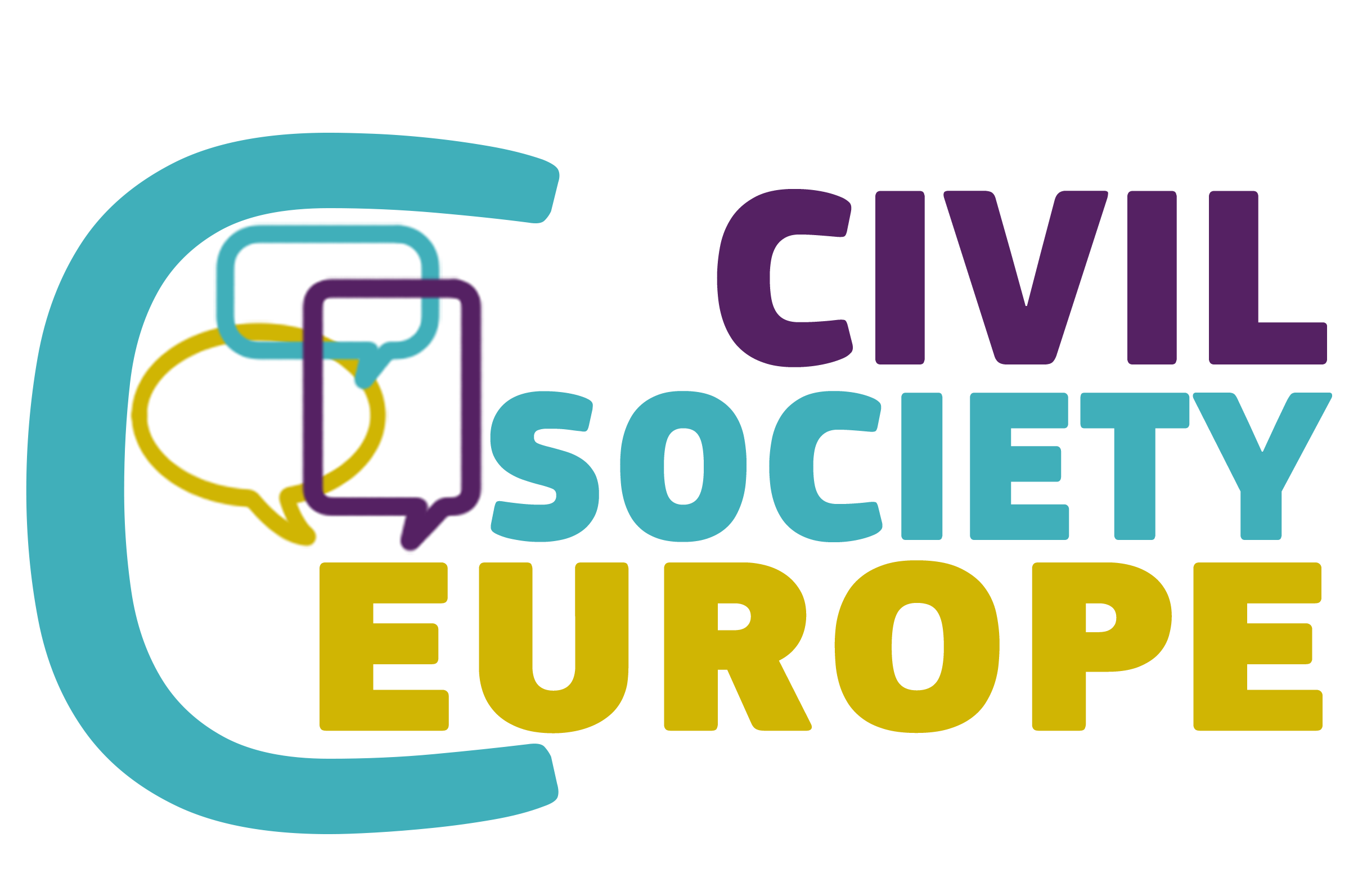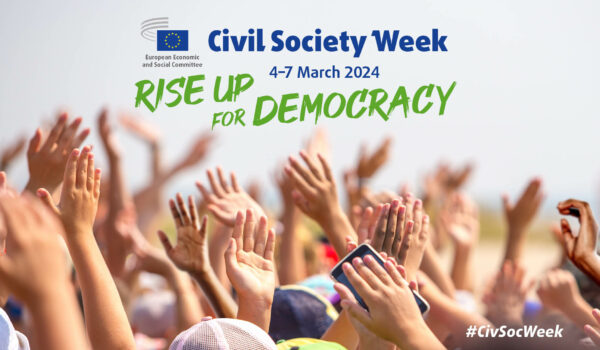From the 4th to the 7th of March, Civil Society Europe participated in the Civil Society Week entitled «Rise Up for Democracy» at the European Economic and Social Committee. With the European elections in June 2024 holding a key role in Europe’s future, the event shined a light on the threats to democracy and the challenges in safeguarding democratic values.
We had the pleasure of co-organising three workshops with the participation of representatives from civil society, media, academia and the EU institutions, leading to fruitful discussions around pressing issues such as the EU elections, civil dialogue & civic space, inclusive democracy, and smart policy-making. (Re)visit with us the highlights of the event, including the outcomes of the discussions and our recommendations moving forward, highlighted quotes and pictures!
1. What’s next? Our recommendations to future EU leaders on how move forward
Civic space, threats to democracy and EU elections: 1,2,3 steps forward
Co-organised by CSE, Social Platform and Transparency International EU, this session discussed the links between shrinking civic space and the state of play of democracy in the EU against the backdrop of the EU Elections, in a context of increasing risk of disinformation and interference.
The following recommendations emerged from the workshop and were presented in the closing session:
- Step 1: The EU should address threats to democracy both internally and externally, notably through: promoting and supporting independent media and civic education at all levels; addressing the existing loopholes in the Defence of Democracy Directive, in particular regarding its scope.
- Step 2: The EU should develop a European strategy for civil society, including: measures for a better overall operating environment for CSOs; a protection mechanism for civil society actors within the EU; an increase in the amount and accessibility of funding for civil society actors; a proper framework to monitor civic space trends.
- Step 3: The EU institutions should conclude an agreement on civil dialogue to make sure that civil society can be meaningfully involved in all the stages of the policy making process .
Civil dialogue for inclusive democracy: 1,2,3 steps forward
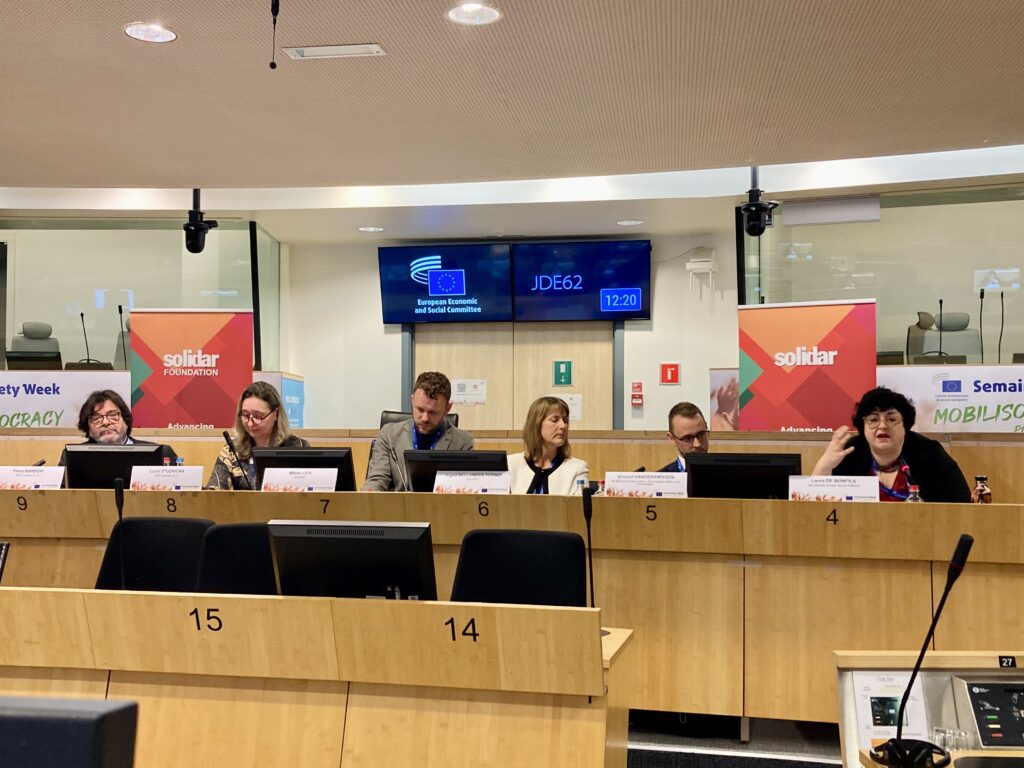
Co-organised by CSE, SOLIDAR and the European Civic Forum, this session explored the role that civil dialogue should play in fostering democracy through the participation of various groups, including the most marginalised ones.
The following recommendations emerged from the workshop and were presented in the closing session:
- Step 1: Civil dialogue is the backbone of representative democracy and is essential to amplify the voice of the most vulnerable groups in our society and to give concrete responses to the diverse needs of the people in Europe. More institutional recognition, support and involvement of organised civil society is needed for it to fulfil its full potential and for Art 11 TEU to finally become a reality.
- Step 2: Civil dialogue does not mean having a third social partner to engage in social dialogue, but to have a parallel, equally important and structured process for representing the diversity of civil society in Europe contributing towards fair and sustainable public policies that leave no-one behind. The two processes are not mutually exclusive but rather mutually reinforcing.
- Step 3: There is momentum for progressing on the institutionalisation of civil dialogue and this must be seized in the next EU mandate, it is high time for this. Concrete action such as a Civil society strategy based on an enabling civic space, a mechanism to protect civil society, activists and defenders and adequate funding, as well as an EU Interinstitutional agreement are the steps forward.
Smart public policymaking in the EU – Making better choices together: 1,2,3 steps forward
Co-organised by CSE and the European Association for Local Democracy, this workshop discussed the state of play of policymaking processes in the EU, as well as the links between high-quality public policymaking, democracy and the meaningful involvement of non-governmental stakeholders or academia.
The following recommendations emerged from the workshop and were presented in the closing session:
- Step 1: The democratic process needs to adapt to regain the trust and engagement of all citizens, including those from marginalised and underrepresented groups. Since a multi-stakeholder, multi-level approach is a guarantee for better and more effective public policies, and since civil society input is evidence-based and this connection with evidence guarantees better policies, public authorities should respect civil society and academia, engage in dialogue with civil society organisations (CSOs), and strengthen partnerships with them. Moreover, input from CSOs and citizens should be viewed as legitimate and meaningfully included in public policymaking. Citizens’ assemblies should also be strengthened to bring about new topics and policy positions on the political agenda.
- Step 2: Co-creation of policies with the communities and CSOs, where many actors can feel ownership of the process and the results, have a stronger rate of effective implementation. Therefore, it is important that participation pathways not only exist, but effectively shape the policies in a way that civil society can feel ownership of policies. Last but not least, more attention needs to be paid to effectively implementing public policies, and to monitoring and reviewing them.
- Step 3: Public policies are common goods but they become private goods when captured by special interests, and this is indeed a big issue. Political parties and social actors, including think tanks, are grossly underfunded and have to rely on finances from special interest, for-profit groups. A revision of public funding to policymaking actors is therefore needed. Furthermore, we need to ensure the existence of public good-oriented knowledge intermediaries to translate scientific evidence into policy recommendations.
2. Civil Society Week in quotes
Click on the pictures to expand and read highlighted quotes from the CSE Secretariat and Board members.
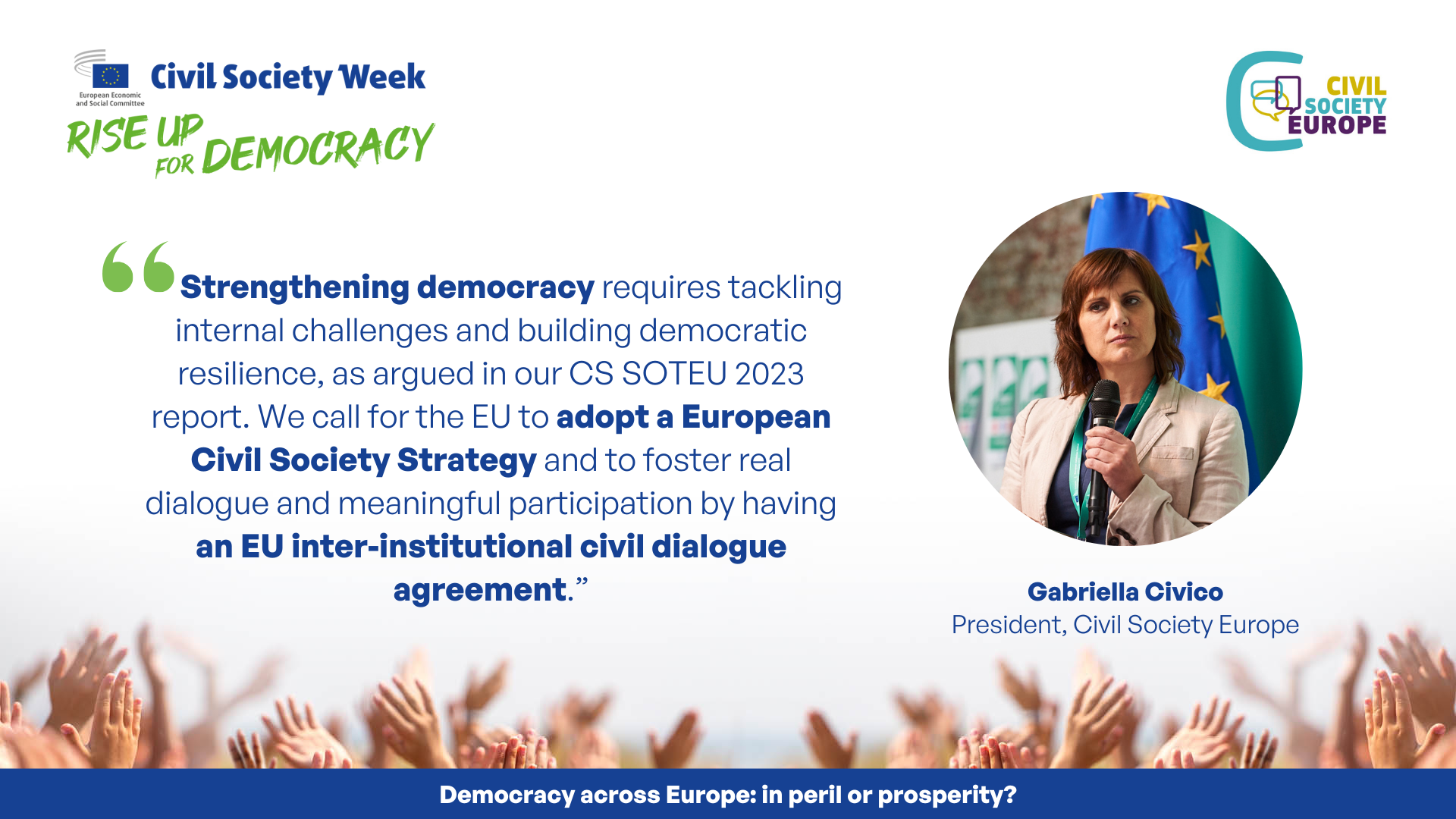
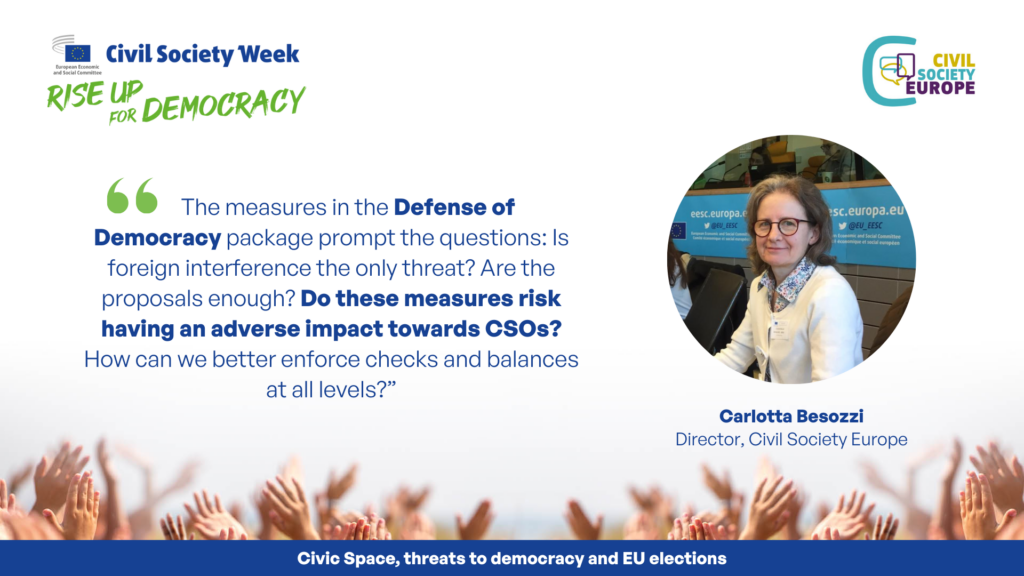
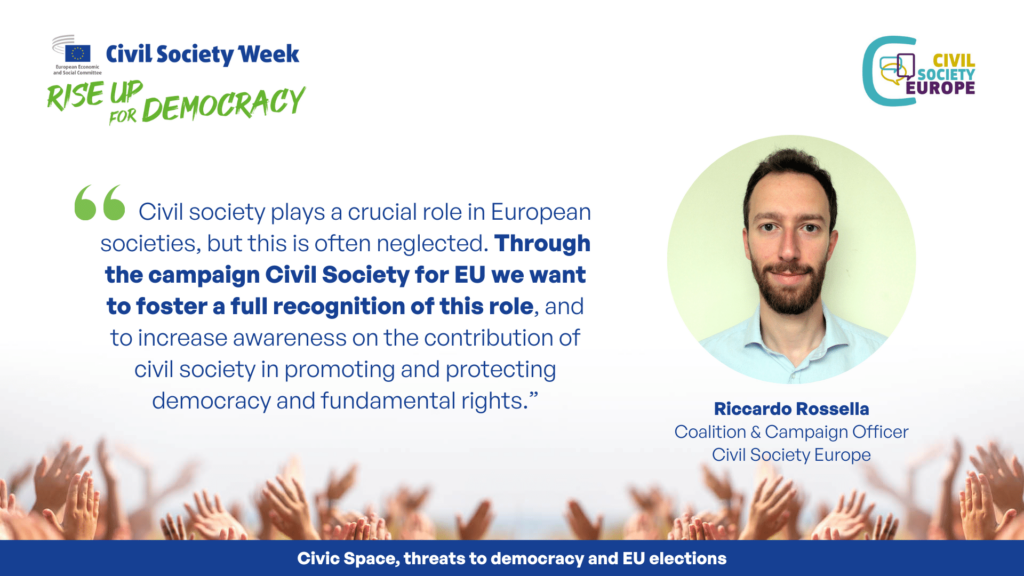
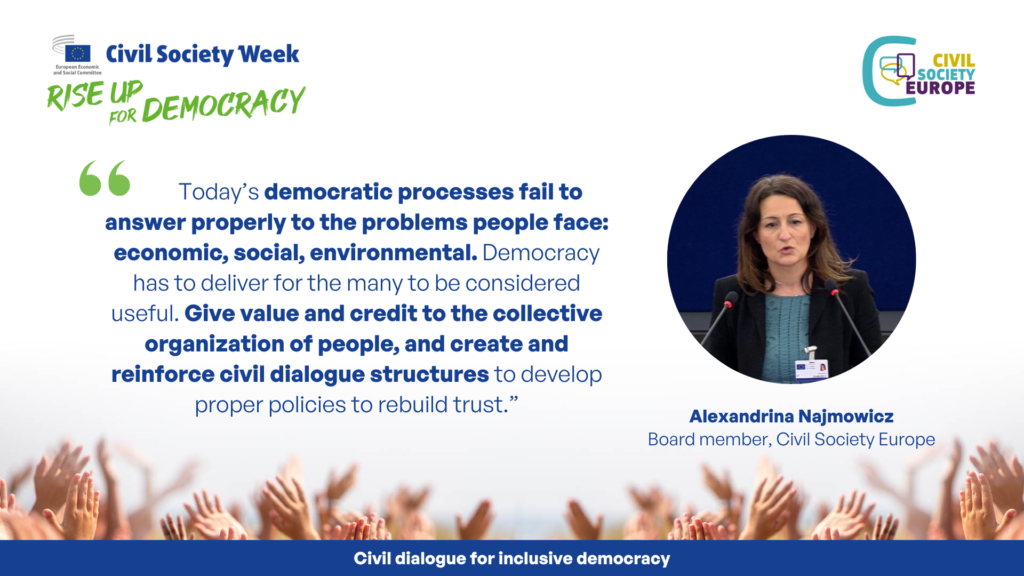
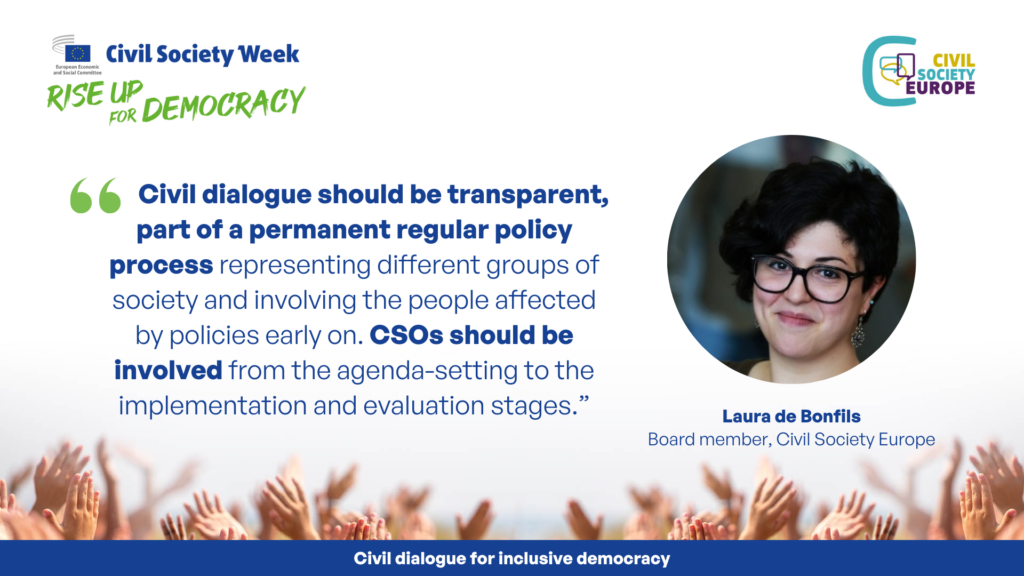
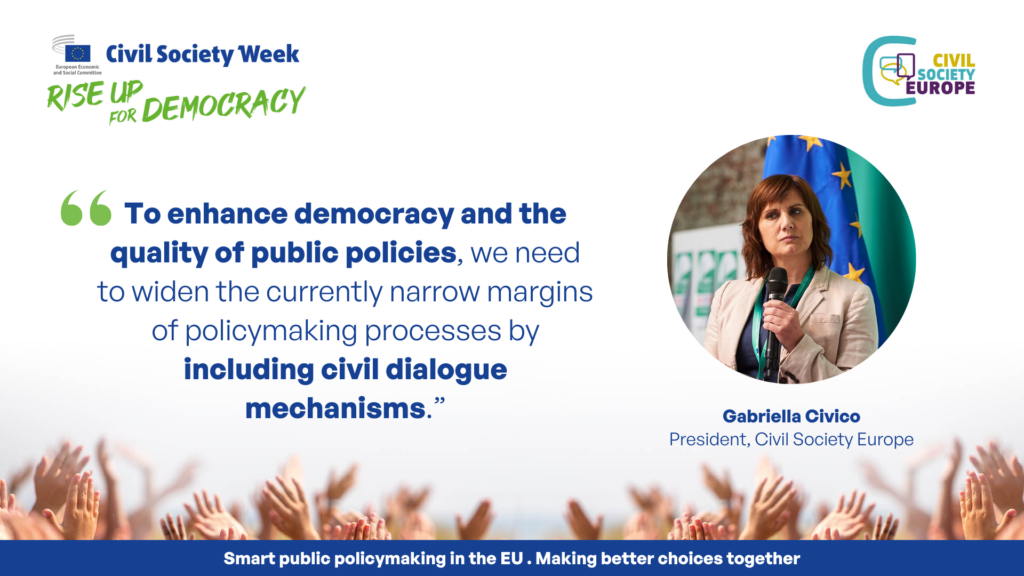
3. The week in pictures
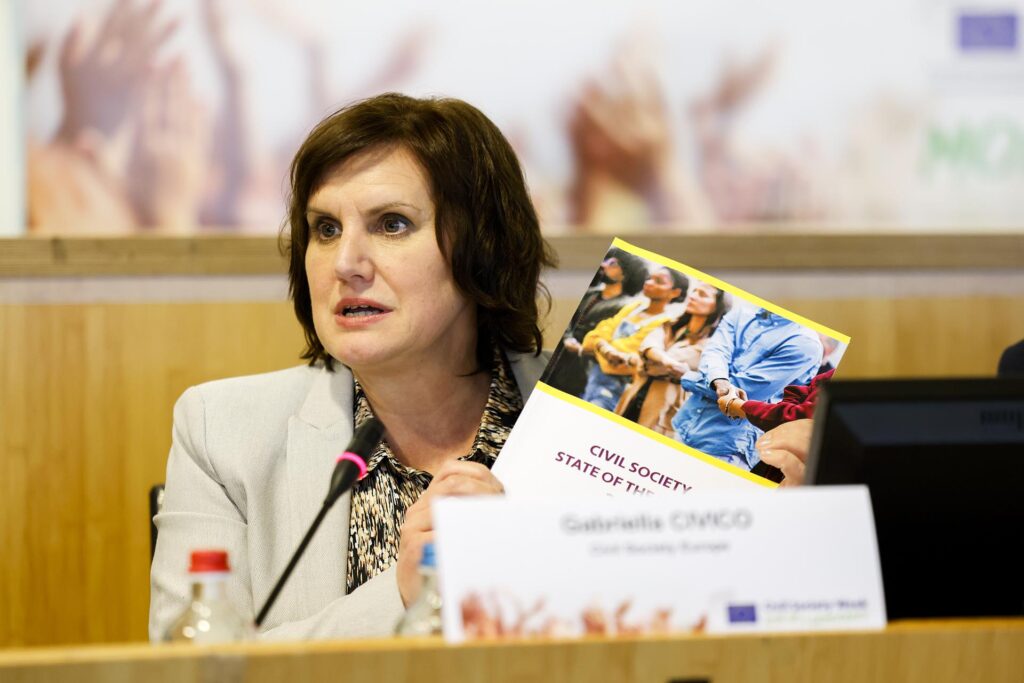
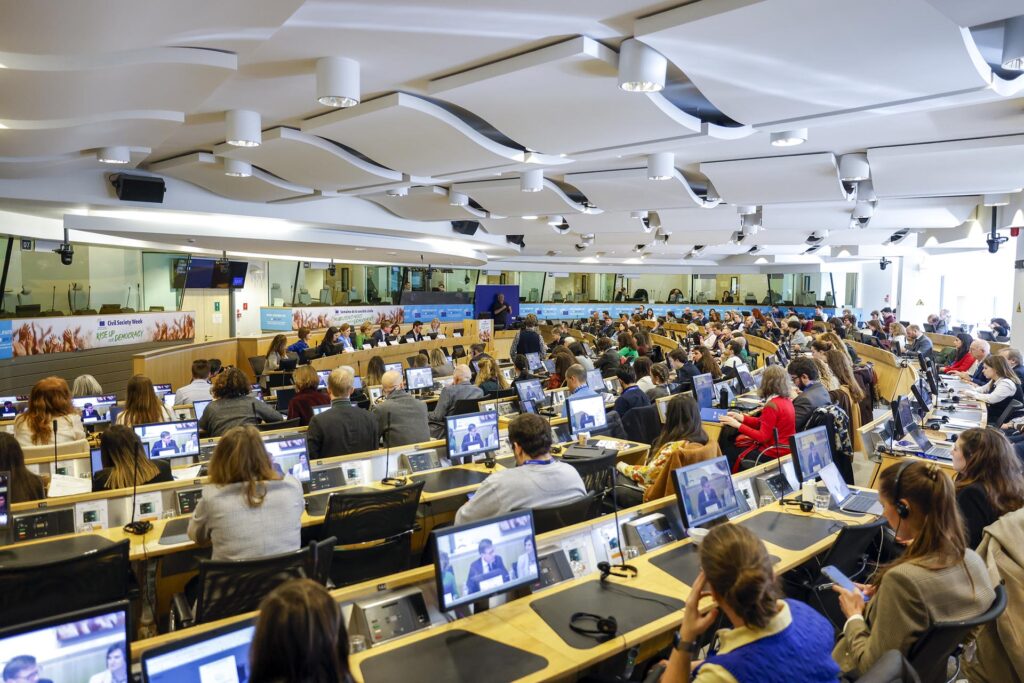
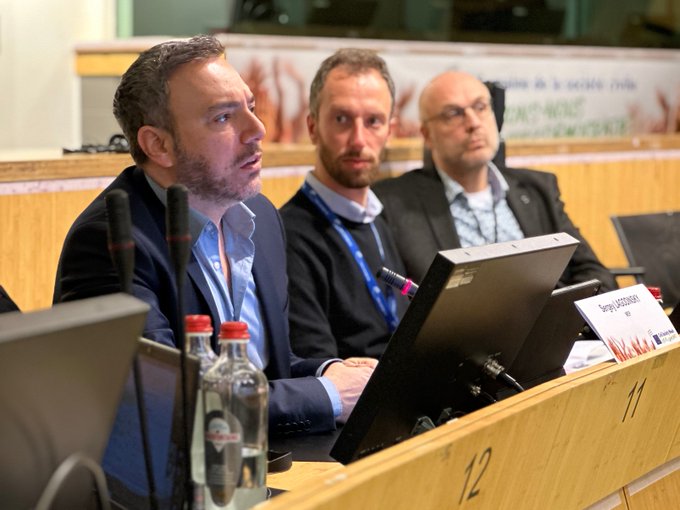
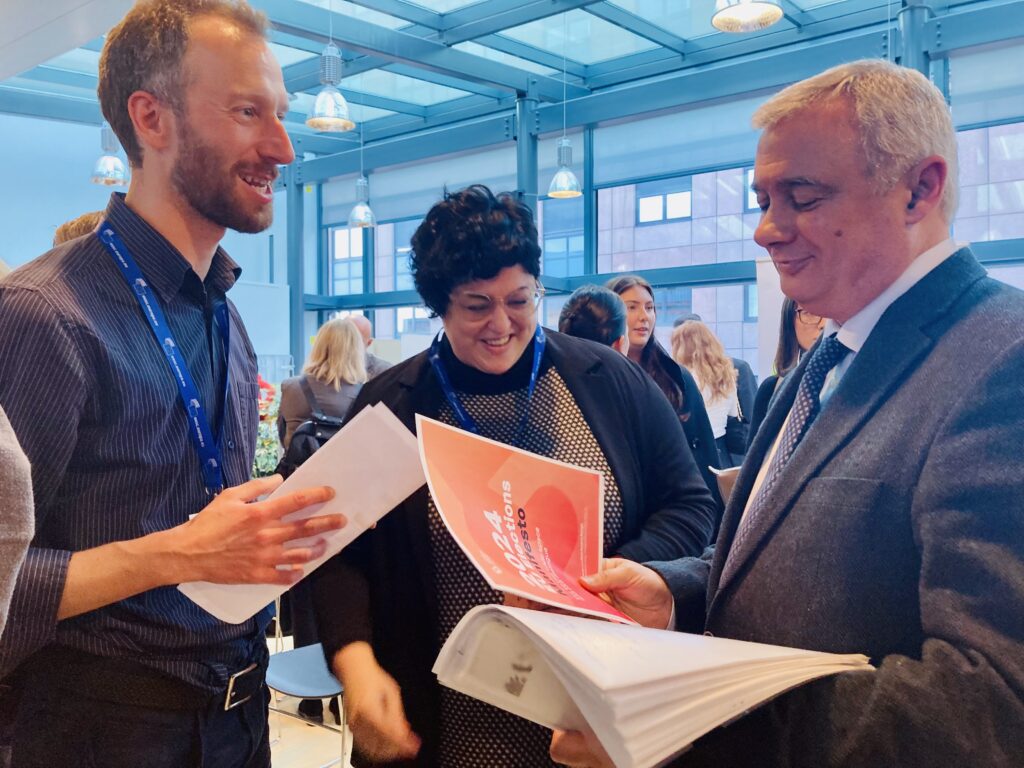
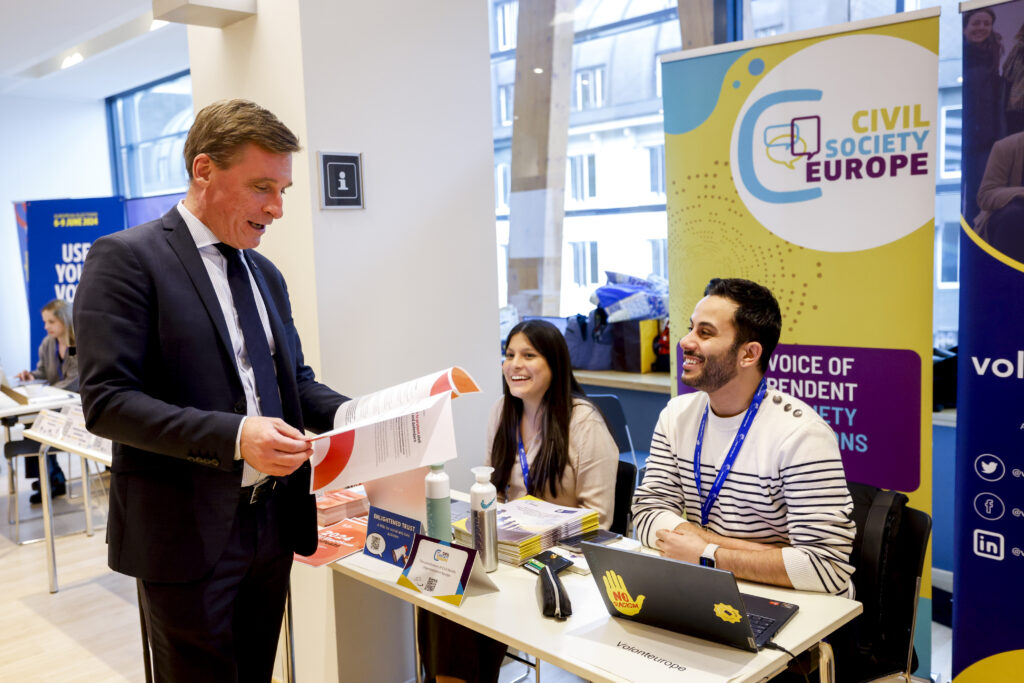
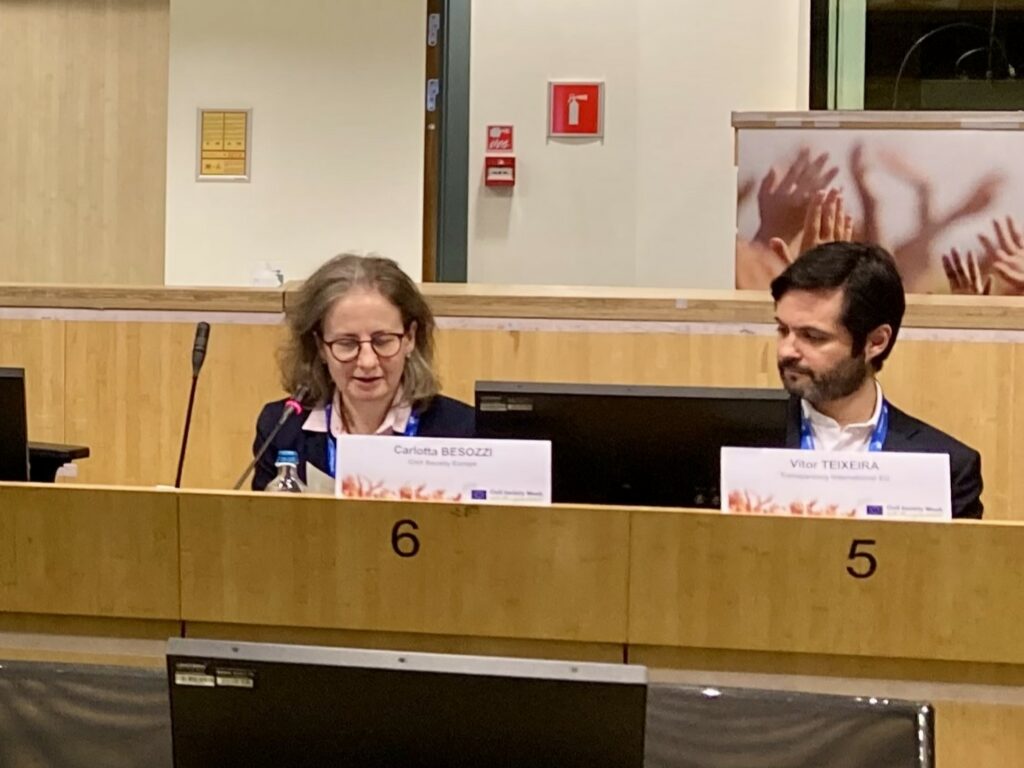
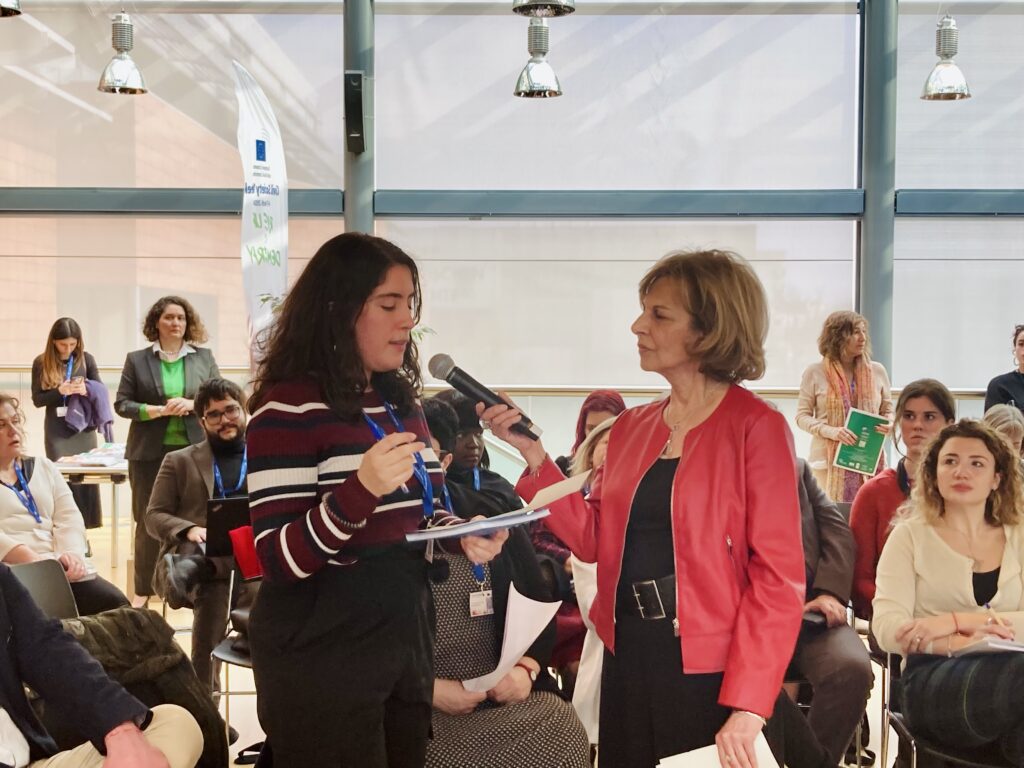
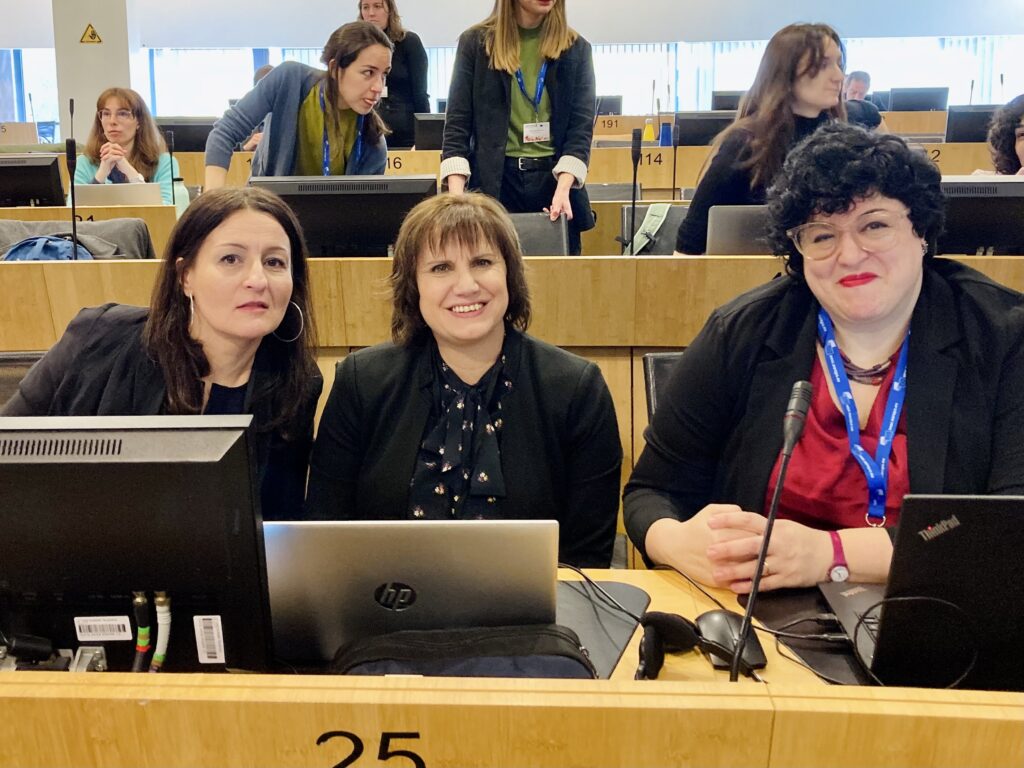
Thank you to all the speakers and attendees of our workshops for contributing to vibrant debates, as well as the event’s organisers for making this Civil Society Week such a fruitful space. See you at the next #CivSocWeek!

